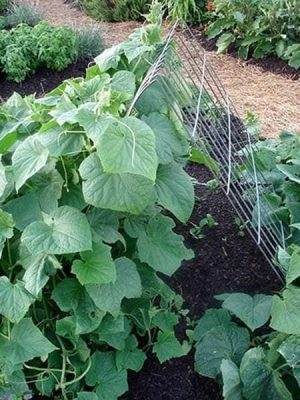A Sino-Sri Lankan spat over fertilizer has ended in China’s favor. Sri Lanka has reportedly agreed to pay 70 percent of the claim made by a Chinese organic fertilizer company for a shipment that Colombo had rejected as it was found to be contaminated.
According to Agriculture Minister Mahindananda Aluthgamage, Sri Lanka will pay $ 6.7 million to Qingdao Seawin Bio-tech Group for the shipment of 20,000 tons of fertilizer. In addition, Sri Lanka has agreed to buy fresh stocks from the company, Sunday Times reported the minister as saying.
Only a month ago, Aluthgamage had stated that the Chinese organic fertilizer shipment would not be accepted nor would Sri Lanka make any payment towards this shipment.
Sri Lanka has shifted away from that position.
“We cannot afford to damage diplomatic relations over this issue,” Aluthgamage said explaining the government’s volte face.
China and Sri Lanka have strong relations. Over the past decade, China has emerged Sri Lanka’s largest investor and has played a huge role in the island’s infrastructure development. So deeply steeped in Chinese debt is Sri Lanka that it is said to be caught in a Chinese debt trap. Importantly, Beijing has repeatedly defended Sri Lanka from censure at global human rights forums. An important component of the Sino-Sri Lankan relationship is the strong equation between Beijing and Sri Lanka’s ruling Rajapaksa family.
The recent spat between China and Sri Lanka relates to a consignment of organic fertilizer.
On April 29, Sri Lankan President Gotabaya Rajapaksa announced plans to make the island the world’s first fully organic farming nation. The government imposed a total ban on agrochemicals. Since Sri Lanka does not manufacture organic fertilizer, it had to import urgently. Qingdao Seawin won a government contract to supply 99,000 tons of organic fertilizer.
In September when the ship, Hippo Spirit, which carried the first consignment of 20,000 tons, was heading toward Colombo port, Sri Lankan soil scientists found plant pathogens like Erwinia in samples of the fertilizer. Since the application of such fertilizer to Sri Lankan soil would have serious implications for Sri Lankan biosecurity and impact agriculture for generations to come, the ship was not permitted to dock at Colombo.
A war of words ensued and was followed by tit-for-tat actions.
“The unscientific detection method and conclusion” of Sri Lanka’s National Plant Quarantine Service (NPQS) “do not comply with international animal and plant quarantine convention,” Qingdao Seawin said in a statement. It accused NPQS of having also “irresponsibly conveyed false and even controversial remarks to the media.” The Chinese company also slammed the media for using “derogatory words” like “toxic, garbage, pollution” to describe the fertilizer consignment. This was aimed at “seriously slander[ing] the image of the Chinese enterprises and the Chinese government,” it said.
When a Sri Lankan commercial high court halted payment of $9 million for the fertilizer onboard the Hippo Spirit, the Chinese embassy in Colombo waded into the dispute. It blacklisted Sri Lanka’s state-owned People’s Bank for not making the payment to the company.
In subsequent talks with Sri Lanka’s agriculture ministry, Qingdao Seawin, put forward several conditions for resolving the dispute. Sri Lanka would have to pay 70 percent of the agreed price in the original tender agreement and additional freight charges, it said. Moreover, the agriculture ministry would have to issue a statement that the shipment was rejected because of an import permit dispute and not because of the quality of the fertilizer. Clearly, Qingdao Seawin did not want the controversy over the quality of its shipment to Sri Lanka to impact its trade with over 50 countries, including the U.S.
This is not the first time that Sri Lanka has buckled under pressure from China.
Back in 2017, for instance, when the Sri Lankan government was unable to repay $1.2 billion loan it had taken from China for construction of the Hambantota deep-sea port, it was forced to hand over the port on a 99-year lease to China Merchants Port Holdings along with along with 15,000 acres of surrounding land in lieu of repayment of loans.
Attempts by successive governments in Colombo to revisit the Hambantota port agreement to secure better terms for Sri Lanka did not work. Sri Lanka had no choice but to hand over the strategically located Indian Ocean port to the Chinese.
Even as China came out victorious in its spat with Sri Lanka over the organic fertilizer controversy, the Rajapaksa government has partially lifted the ban on chemical fertilizers. It has permitted the private sector to import fertilizers and farmers will have to purchase it from the open market.
If Chinese pressure forced Colombo to buckle down on a toxic consignment of organic fertilizer, mass protests by farmers forced the government to retreat on its fertilizer policy.

































